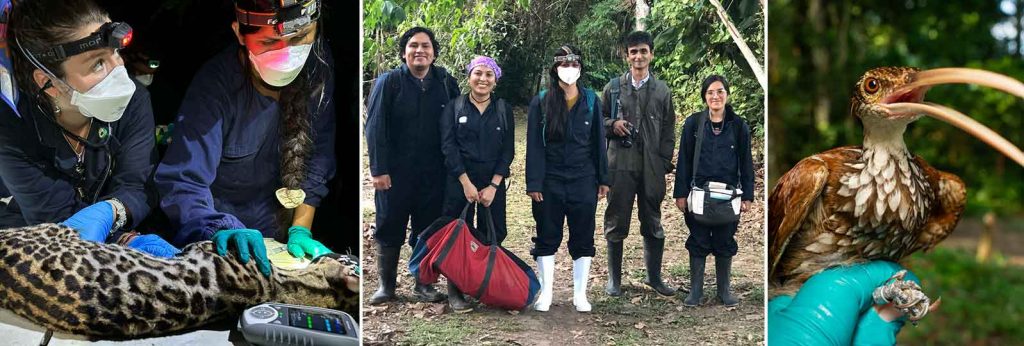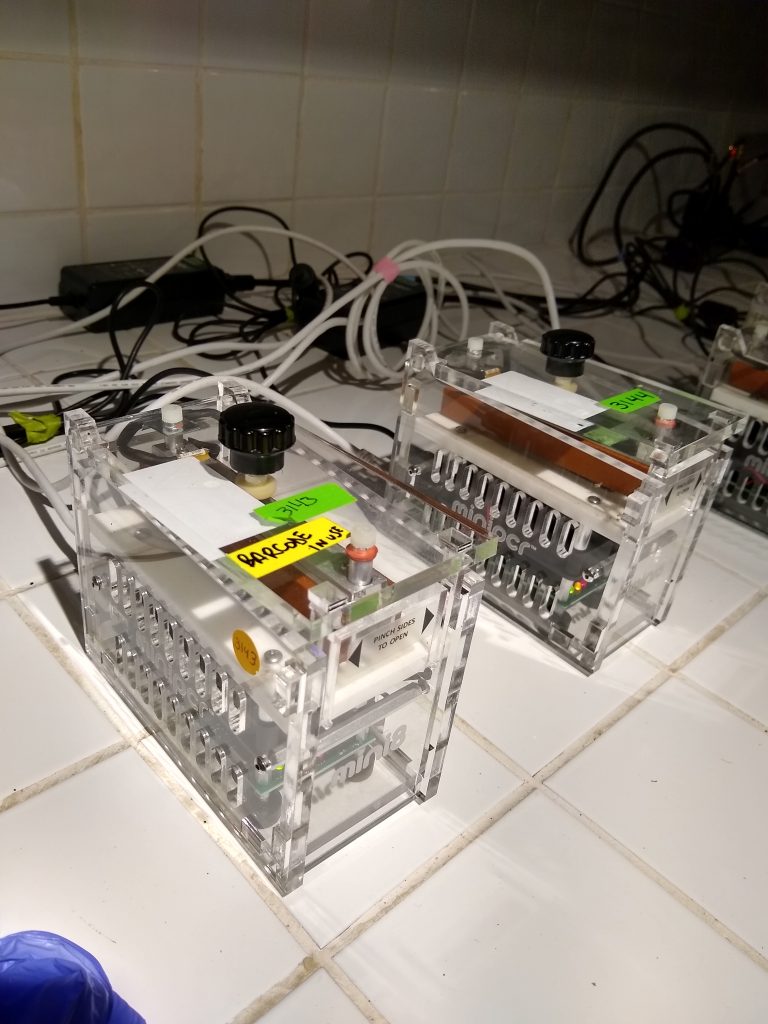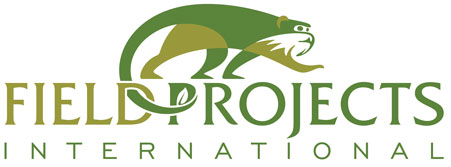Participate

Participate
We offer short-term courses in field biology and genetics at locations around the world, and in-depth researcher training programs in the Peruvian Amazon, typically between May and August.
2026 WILDLIFE BIOLOGY
RESEARCH ASSISTANTSHIP PROGRAM

Our primate behavior program involves working with 11 free-ranging populations of Neotropical primates, and in particular the emperor and saddleback tamarins, at the Los Amigos Biological Field Station in Southeastern Peru. You would be joining an established primate research program, ongoing since 2009. The primary tasks in this position will be to:
1.) Conduct daily behavioral follows of several groups, typically with one radio collared individual.
2.) Scan sampling of behavior at fixed intervals.
3.) Marking and collection of fruits from feeding trees.
4.) Opportunistic collection of fecal samples.
5.) Recording of spontaneous reproductive behaviors such as mating and scent marking.
6.) Maintain a grid of UHF radio nodes distributed at regular intervals in the forest to record animal movement and survival year-round.
Movement data collected will be associated with forest structure parameters acquired by high density lidar imaging. Feeding behavior data and samples will be incorporated into a study on natural seed dispersal. Social behavior will be used for a long-term dataset on cooperative breeding behavior.
CAPTURE-SAMPLE-RELEASE

Our Wildlife Health Training Program is held at the Los Amigos Biological Station in Southeastern Peru. Participants will rotate working with five hands-on sampling teams:
1.) Nonhuman Primates
2.) Birds
3.) Bats
4.) Small-Terrestrial Mammals
5.) Medium-Large Mammals
Participants work alongside experienced researchers and veterinary scientists to gain valuable field experience in one of the world’s biodiversity hotspots in the Peruvian Amazon. This program is for aspiring biologists, anthropologists, veterinarians and others interested in biodiversity conservation, genomics, field research, and the One Health approach. Students assist with data collection for active research projects, with the possibility of continued involvement beyond the program’s end.

Participants will spend their time between fieldwork, tracking wildlife & collecting biological samples, and working alongside our genetics team conducting hands-on laboratory research with advanced sequencing instruments and automated pipetting robots to extract, enrich, and analyze DNA in our state-of-the-art BSL-II molecular lab
Beyond genetics, participants may have the opportunity to explore mercury bioaccumulation research assisting with our DMA-80 mercury analyzer. Gold mining in the Amazon releases toxic mercury into river systems, impacting wildlife at multiple trophic levels. Some species have even shown epigenetic changes due to prolonged mercury exposure – a crucial issue in global conservation science.
With only 3–4 research assistant (RA) spots available, this is a limited opportunity for those eager to dive into real-world molecular research. Unlike typical programs, we don’t structure activities around RAs; RAs in this program will be immersed in active projects, gaining hands-on experience with cutting-edge techniques.
While prior experience in sterile lab techniques, data management, or bioinformatics is helpful, it’s not required – just curiosity, dedication, and passion for science!
PREVIOUS PROGRAMS
in vietnam
This program is carried in partnership between FPI and the Institute for the Ecology and Conservation of Nature (IECN), based at Vinh University. Participants will join the field team to carry out a herpetofauna survey at one of our designated sampling locations in the Annamese Mountains.
By the end of this program, you will have experienced a variety of techniques essential to the study of wildlife, such as biological sampling, sample handling and storage, and data collection.
- Transect survey methodology
- Preliminary classification of taxa using morphological characters
- Non-lethal sample collection
- Safe capture and release of amphibian and reptile taxa
- Safe animal handling of amphibians and reptiles (non-venomous snakes)
- Sterile sampling procedure, best-practice labeling and storage.
- Collection and management of animal encounters and health data
The overall goal of this program is to collect long-term survey data of natural and disturbed amphibian and reptile communities, which should reflect health and sustainability of the Annamese ecoregion.

The 6th Genomics in the Jungle program combines training in molecular research techniques with a real-time sampling effort from Amazonian fauna at the Los Amigos Conservation Hub that sits at the edge of a 300,000 hectare conservation concession of intact lowland tropical rainforest. The field station is equipped with an in-situ genetics laboratory, the Los Amigos Wildlife Conservation Laboratory. Course participants will assist experienced field biologists and geneticists in collecting samples and then carry out the full pipeline of DNA extraction, amplification, sequencing, and bioinformatic analysis for species identification and basic mitochondrial genome assembly.
Brief training is provided in biological sample collection from select vertebrate taxonomic groups – typically including amphibians, reptiles, birds, and/or small mammals – as well as eDNA sampling from still water sources such as oxbow lakes, palm swamps and nearby clay-licks. Samples collected in the beginning of the program serve as a basis for carrying out a full genetics pipeline consisting of DNA isolation, clean-up and quality assessment, amplification, sequence library preparation, Nanopore sequencing, and basic bioinformatic analysis. The participant to instructor ratio for the program is kept low to provide personalized support to participants and to reflect a small research team dynamic. This program is ideal for students, faculty and young professionals that will be straddling both field and laboratory work environments, and who are expected to carry out their own data analysis. By conducting the program in a remote, hyper-diverse forest environment we are able transition between collection, laboratory, and analysis activities relatively seamlessly, resolving challenges associated with collection or lab work as they appear – as is typical in the field and lab!
What’s it like to join us in the field?
Location: 443 Old Via Rancho, Escondido CA 92029
Phone: +1 (314) 649-8636
